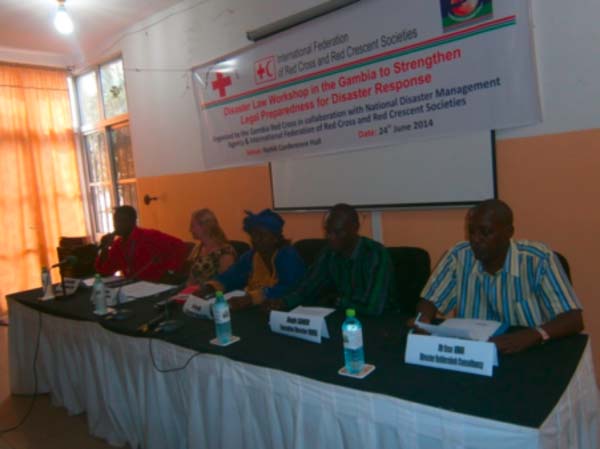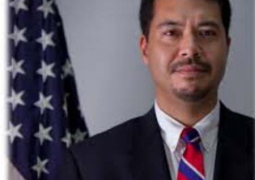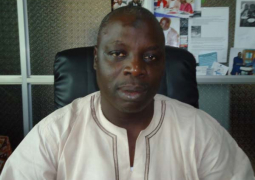
The Gambia Red Cross Society (GRCS), International Federation of the Red Cross (IFRC) and the National Disaster Management Agency (NDMA) Tuesday held a day’s workshop on disaster law to strengthen legal preparedness for disaster response in the country.
The workshop held at the NaNA Conference Hall along the Bertil Harding Highway was attended by stakeholders involved in disaster risk reduction and management.
Speaking at the ceremony, Serign Modou Joof deputy director of the NDMA, said in the last twenty years the number of disasters had nearly doubled worldwide due to the effects of climate change.
“We have experienced and continue to experience various types of disasters, in particular floods, food insecurity and disease outbreaks,” he said.
He added that the NDMA focuses mostly on the national and local preparedness and response to disasters.
In terms of the existing framework for disaster management in the Gambia, they have a range of instruments, most importantly the National Disaster Management Act 2008 and the national management policy of 2007, Joof said.
The Gambia government considers that a coherent and clear legislation was crucial to prepare for and respond effectively to disasters, he added.
There are many players involved when disaster strikes, and the government is open to discuss how the response to natural hazards could be managed even better with support and guidance of well designed laws and regulations.
The lack of appropriate policy and legal frameworks may lead to delay in disaster response or a badly coordinated response that prevents assistance to be given to the affected populations as quickly as possible, Joof went on.
Fatou B. Gaye, acting Secretary General GRCS, said the GRCS has several branches all over the country, and they also enjoy the participation of several thousands of volunteers in these branches.
The GRCS has a good reputation in the country, plus the fact that it has been known for delivering various services, such as first-aid, ambulances, health promotion, disaster relief to the most vulnerable communities of The Gambia.
The Red Cross and Red Crescent movement is the oldest and the biggest humanitarian movement worldwide, and disaster response continues to represent the largest portion of their work, with assistance to millions of people annually ranging from refugees to victims of natural disasters, according to Ms Gaye.
She added that the sharp increase in the number of natural disasters worldwide in recent years, had prompted the Red Cross to devote more attention to disaster preparedness activities.
She said the workshop was part of the efforts to prepare themselves better for disasters.
Ida Marsteins, a disaster law coordinator for Africa of the International Federation of the Red Cross and Red Crescent Movement did the presentation on International Disaster Response Law IDRL and why it matters in disaster response.




